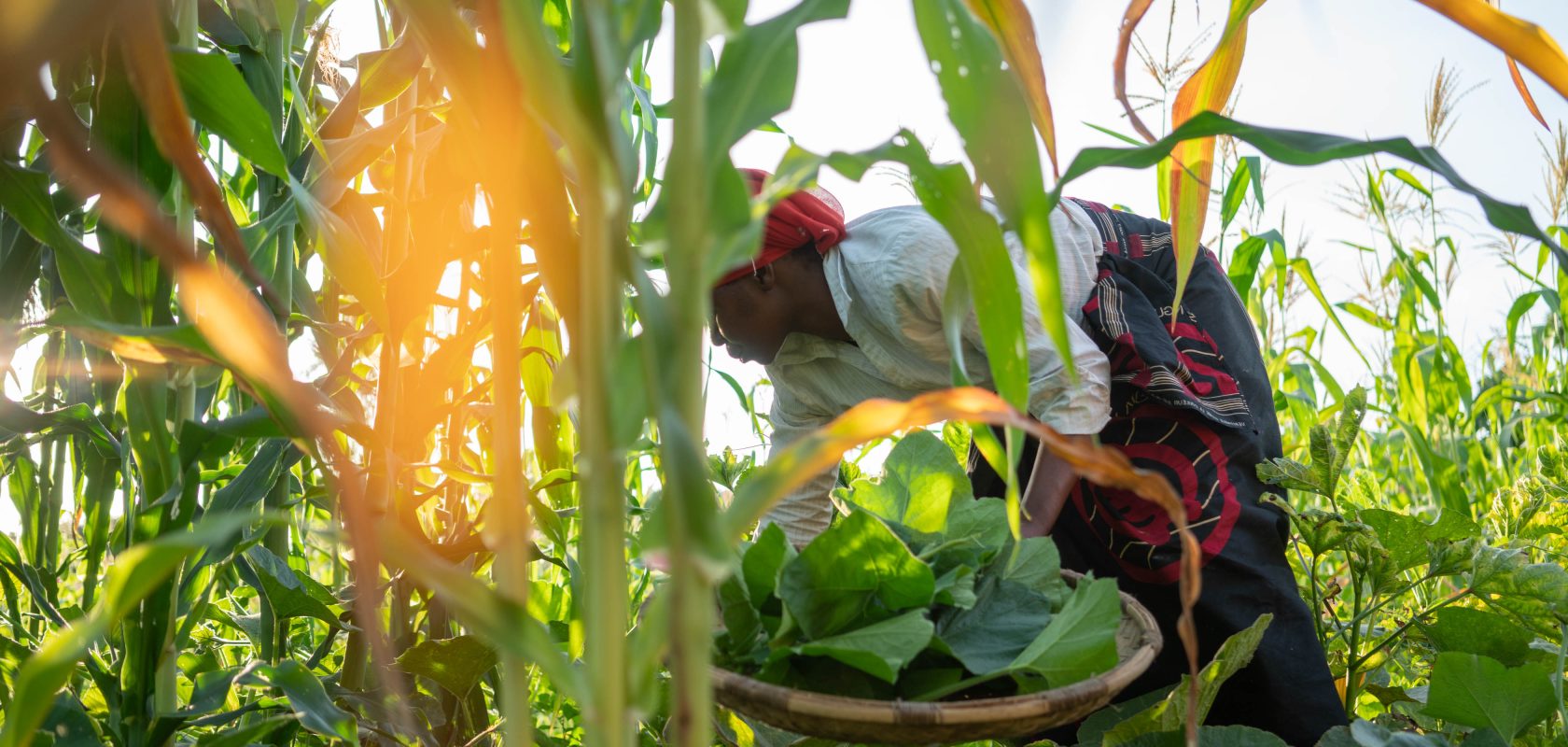In a brick house in Nyama Village, Malawi, Liness Friday, 26, lives with her husband and three children. They have been in this house for five years now and Liness dreams of having a cement house, without a grass thatched roof.
Like most women in the area, Liness takes care of the home, “I farm, sweep around the home, washing clothes and cooking. I like cooking, because it means I am going to eat. I cook nsima, but also porridge for children to eat before they go to school. When we celebrate, I like to prepare rice with meat.”
She learned hard work at a young age when, in order to afford pens and notebooks for school, she had to start doing piecework. In the end, school fees and uniform costs became too much forcing her to drop out. Nevertheless, Liness’ dedication to providing for her family has never faltered which is evident as she is making sales.
“We do piecework, farm piecework. But I also sell tomatoes. I also make banana fritters for sale at the market. Sometimes I sell sugar cane. Farming worries me. I normally protest farm work because it is painful. Often I am disappointed, because I normally obtain a small harvest, because my farm is small.”

Liness hold her solar light proudly in her fields where she farms. SolarAid/Chris Gagnon.
Everything changed when an exciting opportunity to become part of a Mayi Wala group presented itself to women in the nearby villages. “We were advised to start doing business in groups. We did well. We didn’t have enough capital but they supplemented us,” says Liness. “I am interested in women working together as a group because we don’t spend the money without evaluating. In a group business we don’t have weaknesses because we encourage one another.”
Joining a Mayi Wala group has allowed Liness to provide financially for her children, while their health and safety has improved as they are now using solar power in their home. “We were using straw fire in the past. We took grass, placed it on the fire and took fire into the house. Problems occurred because once the straw fire is near something, it burned right away.
The straw fire burned something and a fire started. After some time, we started buying batteries, we tied them together and connected to small bulbs. There were challenges because the batteries didn’t last long. We just used them for two days, and then they were dead. As a result, we were wasting a lot of money.”

The two Mayi Walas groups Chimwemwe and Tikondane have training with SunnyMoney Loans and Member Service Officer, Alex Mpenda. Photo: SolarAid/Chris Gagnon.
In the Mayi Walas group, which Liness and her friends have named Chimwemwe, the women have access to business support and training from the SunnyMoney team, “The training is important because it encourages us. It also opens our minds. I’ve learned that in business one needs commitment (…) Before the solar lights came, we were just spending without understanding what we were doing. However when we joined the group we started building our business capital, that means our businesses are rising,” explains Liness.

Liness Friday together with a solar light customer. Photo: SolarAid/Chris Gagnon.
She believes the success for her Mayi Walas group comes from the fact that no one else was selling solar lights in the area before, “When they came, the demand was very high, because men weren’t selling them. It is good that they gave us this business because there were no solar lights here. Customers were running after us. They didn’t even think about our gender.” Liness enjoys working with other women as a group. “The goodness about Mayi Wala is that we teach one another about home life and the like. In this way, we learn a lot.
We are a group of women. We travel with the solar lamps. We show them and we tell them the name of our village. For those who were interested, they take the lamp on loan and pay back little by little. Some people followed us home to buy the solar lamps.”

Liness Friday together with her three children Dailess (9), Sofina (6), and Leticia (3). Photo: SolarAid/Chris Gagnon.
While Liness’ household is already experiencing big changes from her business, challenges still exist, but she has a positive outlook on her and her family’s future, “When the solar business started, we saved the money in village bank. In the end, we shared a lot of money and we did big things. We bought a goat. It has a kid now.”
I like these solar lights because they don’t require money to work. Since we bought ours, we have never spent money buying batteries. We just put them in the sun and we are able to use them until morning. I bought it a long time ago, and I have never experienced any problems.”

Dailess (9) is now able to do his homework at home by safe, clean light. Photo: SolarAid/Chris Gagnon.
“I hope that our lives will continue to improve, because you know, in the past, things weren’t this way. Now we are moving forward. Expect that I will be able to take care of my house, and I will be able to pay school fees for my children.”
